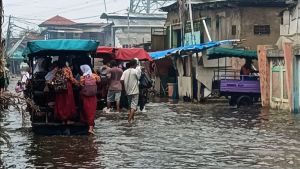JAKARTA - Hot weather makes the body sweat a lot. Thirst is also an indicator of the increasing demand for fluids in the body. However, drinking sweet drinks to relieve dehydration during the dry season is not recommended by Nutritionists from Cipto Mangunkusumo Hospital (RSCM) Fitri Hudayani. "If you drink bottled drinks or those that have a taste to relieve thirst, then the consequences will increase sugar intake in the body," said Fitri, quoted from Antara, Thursday, October 19. He explained that sugar is a source of carbohydrates which is then converted into calories. If the calories of these sweet drinks add to the energy intake that has been obtained from other foods, then the intake of pure sugar and energy in the body will increase. "The essence, later blood sugar can rise, then weight can also rise," he said. In addition, if consuming excessive carbohydrates and is not burned, it will be stored into fat in the body. "It risks causing a buildup of fat in the liver," he explained. He emphasized that the best liquid to relieve dehydration is water. "If for example in thirst conditions, to replace body fluids or to make the body more comfortable, the best is water alone," Fitri said. He recommends drinking at least 2-2.5 liters of water or 8-10 glasses a day. Other sources of fluids that can be consumed are from fruits that contain water such as watermelons and foods containing soups such as soup. A number of regions in Indonesia, including DKI Jakarta, experience extreme weather.
VOIR éGALEMENT:
The English, Chinese, Japanese, Arabic, and French versions are automatically generated by the AI. So there may still be inaccuracies in translating, please always see Indonesian as our main language. (system supported by DigitalSiber.id)













